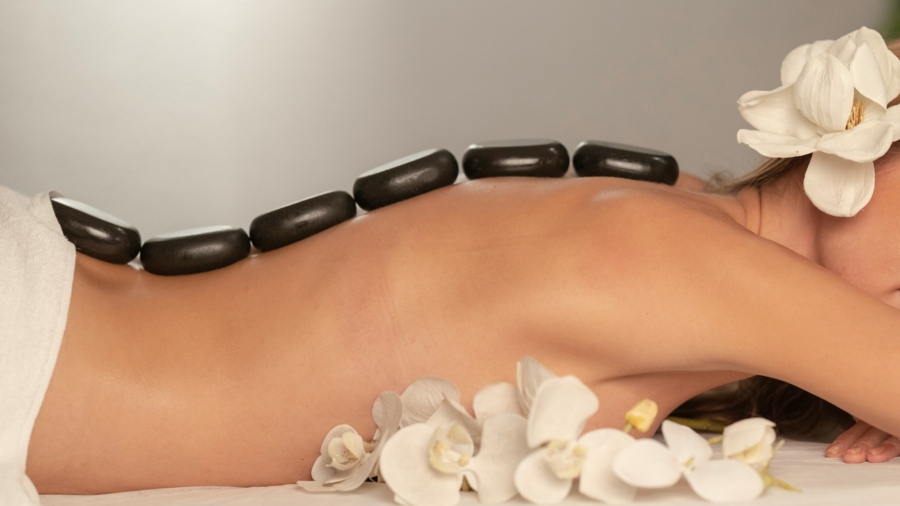Regular massage therapy offers far more than just a relaxing treat—it’s a scientifically supported way to enhance your physical and mental wellness. By alleviating stress, improving circulation, and boosting immune function, massage therapy can significantly contribute to your overall health.
Whether you’re new to massage or exploring professional opportunities to become a massage therapist, this post will explain how it promotes holistic wellness and why it should be part of your routine.
Reduce Stress and Anxiety
Stress is something we all experience, but unchecked, it can lead to serious health issues. Massage therapy is a well-documented method for lowering cortisol levels, the “stress hormone,” in the body, which directly contributes to feeling calmer and more relaxed.
How Massage Reduces Cortisol
During a massage, gentle pressure and rhythmic motions help regulate your nervous system, encouraging the release of feel-good hormones like endorphins and serotonin. Not only does this boost your mood, but it also counteracts the effects of chronic stress on your cardiovascular and immune systems.
Mental Clarity and Relaxation
Many people report a significant improvement in focus and emotional balance following massage sessions. Whether it’s a Swedish massage or a deep-tissue treatment, the psychological health benefits are hard to overlook.
Improve Circulation and Lymphatic Flow
One major way massage helps the body is by improving blood flow and assisting the lymphatic circulation, both of which are essential for overall wellness.
Stimulates Blood Flow
Techniques like kneading, friction, and tapping work to improve circulation by dilating blood vessels. This means better oxygen delivery to tissues and quicker removal of metabolic waste from the body. Improved circulation also promotes faster recovery from injuries or intense workouts.
Boosts the Lymphatic System
The lymphatic system removes toxins and waste, and massage serves as a manual pump to help “drain” lymph fluid efficiently. This is particularly useful after illnesses or surgeries, as it reduces swelling and strengthens your immune response.
Relieve Muscle Tension and Pain
We often carry stress in our muscles—think tight shoulders or a stiff neck after a long workday. Massage therapy directly targets these problem areas to provide relief.
Loosens Tight Muscles
Massage techniques are ideal for easing muscle tension caused by poor posture, repetitive strain, or overuse during exercise. Deep-tissue massages, for example, work on deeper layers of muscle fibers, addressing ingrained knots and stiffness.
Chronic Pain Management
For individuals dealing with chronic pain conditions such as fibromyalgia or arthritis, massage is a non-invasive, drug-free option known to alleviate discomfort. It’s particularly effective when combined with physical therapy or chiropractic care.
Enhance Immune Function
Are you struggling to maintain wellness during flu season or recover from persistent illnesses? Regular massage sessions might provide the support you need.
Strengthens the Immune System
Research shows that massage increases the number of white blood cells in your body, helping you combat infections more effectively. By reducing stress (a common cause of weakened immunity), massage allows your body to focus on staying healthy.
Detoxifying Effects
Therapies like lymphatic drainage and reflexology specifically help eliminate toxins from the bloodstream, further boosting the body’s natural defenses.
Improve Sleep Quality
If you’re constantly exhausted despite clocking 7-8 hours of sleep, massage therapy could provide the missing piece to a good night’s rest.
Activates the Parasympathetic Nervous System
Massage engages your parasympathetic nervous system—the “rest and digest” state—which helps your body wind down and prepare for deep restorative sleep.
Treats Sleep Disorders
Whether you have insomnia or simply trouble falling asleep because of stress, consistent massage treatments can ease the body into better nighttime rhythms. Clients often report sleeping longer and more soundly after massages.
Boost Overall Mind-Body Connection
Massage isn’t just about physical relaxation—it fosters mindfulness and helps you feel more aware of your body’s needs.
Promotes Mindfulness
During a massage, focusing on sensations and touch can bring a meditative quality to the experience. This can help break cycles of worry or anxiety, fostering a sense of bodily awareness.
Enhances Personal Health Awareness
By paying attention to pain points and areas of tension during massage, you can gain insight into potential health issues you may need to address, such as posture or ergonomic adjustments.
Incorporating Massage into Your Lifestyle
Now that you understand the many health benefits of massage therapy, consider how it could become part of your routine. Whether you’re managing stress, improving your physical performance, or exploring how to become a massage therapist yourself, massage therapy offers something invaluable for everyone.
Regular sessions can enhance your overall wellness, making you feel stronger, calmer, and more connected with your body. Interested in exploring massage professionally? Research certification programs in your area to take the first step toward this rewarding career.

